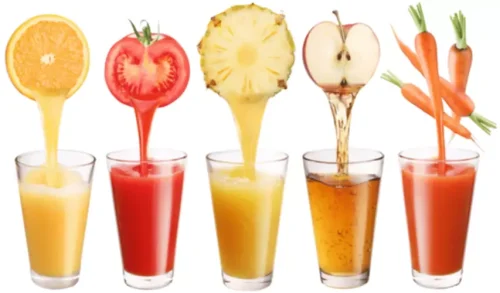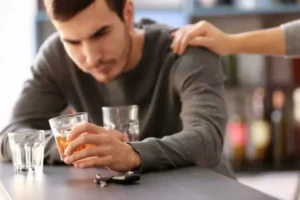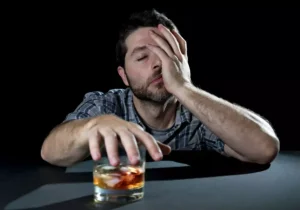
The researchers behind the surveys also found that the perceived risk of the drug has fallen significantly since the mid-2000s. Keep reading to learn more about the science behind marijuana addiction, as well as some treatment options. Marijuana use has also been linked to other mental health problems, such as depression, anxiety, and suicidal thoughts among teens. People smoke marijuana in hand-rolled cigarettes (joints) or in pipes or water pipes (bongs). They also smoke it in blunts—emptied cigars that have been partly or completely refilled with marijuana.
Gratitude enhances health, brings happiness — and may even lengthen lives
Volkow also conducted a 2014 study that found that the brains of people who misuse marijuana have a decreased response to dopamine. Over time, users may graduate from smoking marijuana to using it in high-dosage edible forms or propane-extracted concentrates called dabs. The brain may become resistant to the effects of the drug in an effort to protect itself, so that next time the person uses the drug, it doesn’t have as strong an effect. In order to feel the same high, the person has to take larger and larger doses. In recent years, there have been a number of studies that have highlighted the use marijuana in treating certain medical conditions.
Are there effects of inhaling secondhand marijuana smoke?

However, most people who use the drug do not become addicted to it. Although marijuana is becoming legal in more states, there’s still the potential for abuse and addiction. Although anyone who uses marijuana has the potential to abuse it, there are risk factors that can make marijuana abuse more likely. Having these risk factors doesn’t mean you definitely will develop a substance abuse problem, but you may be more at risk. Approximately 10% of people who use cannabis daily seek treatment. People who don’t seek treatment cite poor motivation, fear of change, stigma, other mental health problems, and lack of access as barriers to treatment.
Breakthrough technique may help speed understanding, treatment of MD, ALS

In fact, Connecticut was the most recent state to legalize the recreational use of marijuana. The plant has historically been used recreationally for its mind-altering effects, which can include enhanced senses and changes in mood. In some states, doctors can prescribe marijuana for medicinal uses such as reducing muscle spasms, pain, nausea, and vomiting. Self-help strategies are important, but sometimes you might need a helping hand. Reach out to your doctor or find a mental health professional who specializes in treating addictions.

And the more blunted their response to the methylphenidate, the more negative emotions they felt, including irritability, anxiety, depression, and aggressiveness. “It is very well-known that dopamine is one of the most important neurotransmitters that regulates reward, motivation, and self-control,” said Dr. Nora Volkow, director of NIDA and one of the authors of the study. One marijuana marijuana addiction user, Conrad, age 47, of San Francisco, said that when he can’t smoke, he drinks more. On the other hand, there are studies that have issued warnings on marijuana and heart health as well as using marijuana for morning sickness. If you need more anesthesia to fall asleep because of your pot use, you’re at a higher risk of low blood pressure and a delayed wake-up after surgery.

Long-Term Effects of Cannabis: Behavior and Cognition
In addition to these health risks, there is also a potential for dependence and addiction. Addiction is a recurring cycle that worsens over time and involves neuroplastic changes in the brain reward, stress, and executive function systems (Koob and Volkow 2016). Weed addiction, also known as cannabis use disorder, is a condition characterized by an inability to control or stop cannabis use despite negative consequences. It’s not just about smoking a joint at a party anymore; it’s about needing that hit to function, to feel normal, to escape the clutches of anxiety or depression that creep in when the high wears off. The negative effects of marijuana are not limited to recreational marijuana.
- Millions of Americans can pick up, and put down, marijuana relatively easily.
- However, not all instances of marijuana use cause hallucinogen-like effects.
- Self-help strategies are important, but sometimes you might need a helping hand.
- Olivine is a Texas-based psychologist with over a decade of experience serving clients in the clinical setting and private practice.
- An update on cannabis use disorder with comment on the impact of policy related to therapeutic and recreational cannabis use.
There are multiple treatments available, like talk therapy, support groups, and even medication when necessary for underlying issues. Many people can use marijuana safely without becoming addicted or abusing it. But like any mind-altering substance, there’s always a chance that it can become problematic. These signs, along with any negative consequences https://ecosoberhouse.com/ from marijuana use, may signal a drug abuse problem. Research has also found that developing a strong sense of self-efficacy, or a belief that a person can resist using cannabis, is an important predictor of long-term abstinence. One approach, call motivational interviewing, helps to turn ambivalence about quitting into energy to quit.
- However, they are likely age-specific effects as preclinical and clinical studies have demonstrated a lack of long-lasting cognitive impairments from adult chronic cannabis use (Renard et al. 2016).
- Dopamine is a type of chemical in the brain called a neurotransmitter, and the medical community believes that it supports feelings of motivation and reward.
- For those with PTSD who experience nightmares, it shuts down the process by which dreams form in the brain.
- Recovery is a team effort, and your support can make all the difference.


